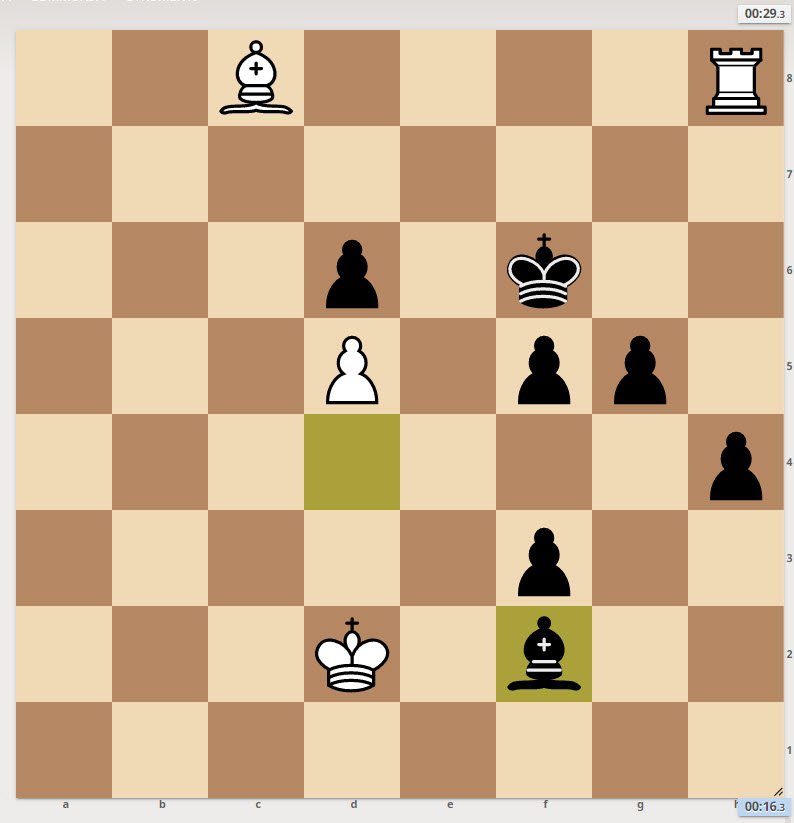A couple weeks ago Andrea recommended me the book ‘The Seven Deadly Chess Sins’, by Jonathan Rowson. It’s mostly about chess psychology. Here’s an except from the book description:
In this thought-provoking and entertaining book, Jonathan Rowson investigates, in his inimitable style, the main reasons why chess-players sometimes go horribly astray, focusing on the underlying psychological pitfalls: Thinking (unnecessary or erroneous); Blinking (missing opportunities; lack of resolution); Wanting (too much concern with the result of the game); Materialism (lack of attention to non-material factors); Egoism (insufficient awareness of the opponent and his ideas); Perfectionism (running short of time; trying too hard); Looseness (“losing the plot”; drifting; poor concentration).
I’ve been reading some parts and I have to say it’s super interesting. The psychology of learning and expertise is one of my favorite topics in skill-building. I intend to continue reading the book during the next two months.
The Lesson: Pawn Ending & Blitz Game Analysis
This week we completed an analysis of a pawn ending my teacher played in one of his games. He gave me this position the previous week and my homework was to figure out if exchanging queens was a good idea for White.

Turns out it is. I wasn’t able to find the winning sequence before the lesson, but we went over it during the class. We explored different variations and talked about concepts such as opposition, zugzwang, mined squares, and tempi.
Here’s a fragment of the lesson:
At the end of the lesson, we talked about the importance of going over our games and doing our own analysis (not just doing the moves of the computer-based review), in different stages of the game. Andrea suggested picking 10 games each week to do my own analysis, to get into the habit. Until now, once in a while, I did computer-based analyses of some of my games. And that was it. Now I’ll go over some of my games on my own.
The Weekly Practice (02/10/21 to 02/16/21)
This week I practiced two Puzzle Storms each day, did basic endings review on Chess.com, tactics on “silent moves” and simplifications, and started studying Dvoretsky’s Endgame Manual.
One other thing I did differently this week was practicing earlier. I tried one day in the morning, at noon, and in the early afternoon. The last chess lessons were at noon, and that’s one of the reasons I’m experimenting with practicing earlier. In the beginning, I thought that ideally, it would be best to practice every day at the same hour I usually get my lesson (to start thinking more in terms of that hour as “the hour I practice Chess”). I did that during the first couple weeks, but after being thrown out for some reason, I found it hard to get back to that. In any case, at this point, I’m confident in my willingness to do the daily practice even if I don’t do it at exactly the same day each week. After six weeks of practice (around forty days), I missed just four days of training (and as I tell here I had good reasons to do it! 😜). I know that I’m not skipping days because of laziness!
The Games of the Week
Between February 10th and February 16th, I played 33 games. These are the picks of the week:
E90 King’s Indian Defense: Zinnowitz Variation (I won with White)
This was a victory against a Fide Master (FM), who at that time had a blitz ranking of 2375. In the endgame, I had to stop a giant mass of pawns on the king’s side.

Here’s another victory:
C05 French Defense: Tarrasch Variation, Closed Variation (I won with Black)
And a defeat by a Fide Master (FM):
B30 Sicilian Defense: Old Sicilian (I lost with White)
That’s all for now! 😊
